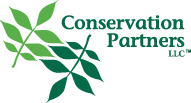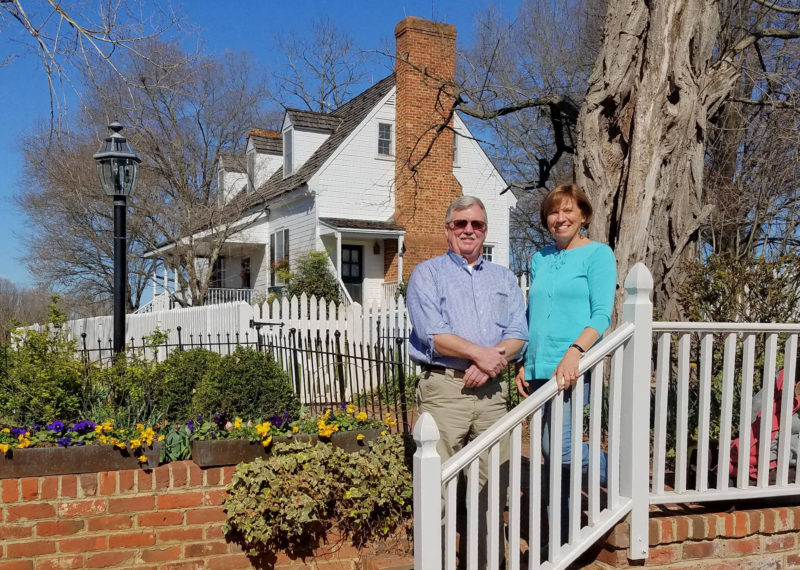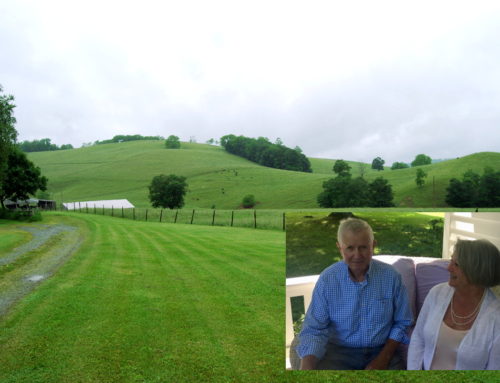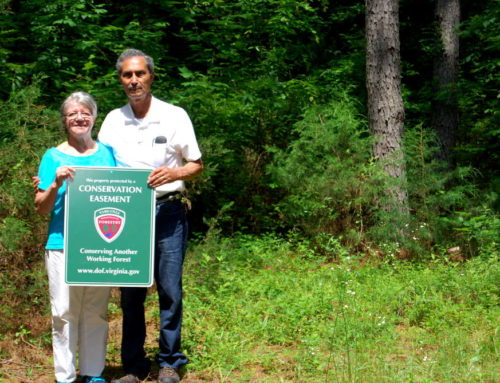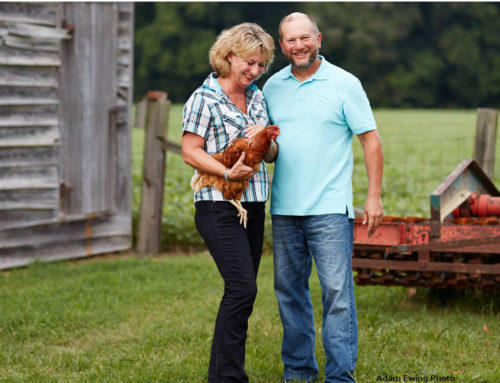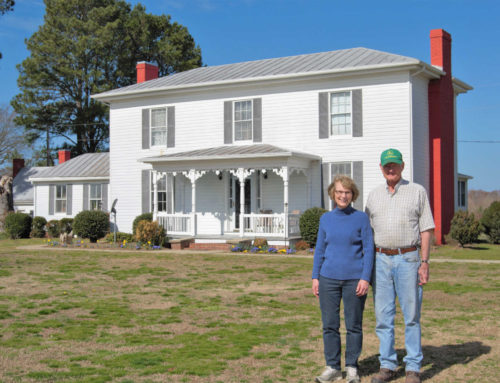Talk about reaching far.
Ronnie and Cheryl Nuckols recently placed a conservation easement on their 175-acre Overhome Farm in Virginia’s Goochland County. The easement protects land that their vision and hard work has transformed into a kind of paradise, with clear streams, green pastures nearly year-round, a cow-calf operation and a menagerie of pets all thriving on the land, gorgeous gardens, and a beautifully restored home that’s been in the family for generations.
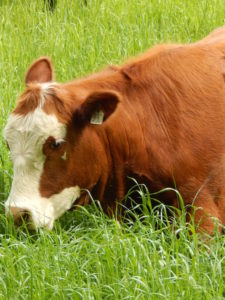
At peak season, grasses grow so high cows don’t even need to reach down to eat. (Photo courtesy Ronnie Nuckols)
But the easement doesn’t just protect the farm. Its protections reach well beyond property lines. Because the farm is bordered by streams that are tributaries to the James River, one mile away, its cow-proofed riparian buffers contribute to the health of the river and of the people downstream whose municipal water is drawn from the river.
One hundred miles downstream, the James River empties into the Chesapeake Bay, so conservation values protected by the easement include goals of the Virginia Chesapeake Bay Preservation Act and the interstate Chesapeake Bay Program. The easement also contributes to land conservation and vital habitat restoration goals of the 2014 Chesapeake Watershed Agreement.
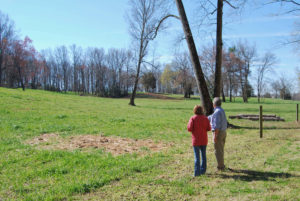
Even in early March, the Nuckolses can graze cattle on green fields. (Conservation Partners Photo by Sherri Tombarge)
The Chesapeake Bay supports habitat for more than 3,000 migratory and resident wildlife species, according to the Chesapeake Bay Foundation, and empties into the Atlantic Ocean.
Talk about reaching far.
And about staying close.
Overhome Farm – so named because of the many family members, old folks and young, who visit “over home” each year – is a Virginia Century Farm, one of nearly 1,400 farms so designated by the Virginia Department of Conservation and Recreation as working farms in the same family for at least 100 consecutive years.
Only three families have owned the farm, said Ronnie Nuckols. The Pleasants owned it in the early 1700s and the Roysters in the mid-1700s. By the end of that century, the farm had been bought at auction by Ronnie’s mother’s family, the Richmonds. Generations were raised on the farm, until the 1940s.
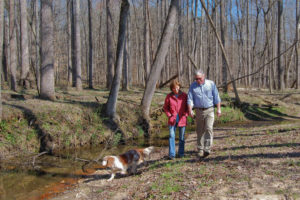
Ronnie and Cheryl Nuckols walk along with the creek with one of their five dogs. (Conservation Partners Photo by Sherri Tombarge)
“The last … to live here would have been Lilly, who was my great-grandmother,” said Ronnie.
The house, built in 1768 and restored and expanded by Ronnie and Cheryl on weekends away from college at Virginia Tech in the 1970s, was nearly demolished three times – once by Ronnie’s grandfather, once by his father, and once by the local fire department looking for a practice burn. And though the exterior had been maintained throughout the years, the interior had collected the detritus of the decades.

In the spring, pastures on Overhome Farm resemble wildflower meadows. (Photo courtesy of Ronnie Nuckols)
For Ronnie and Cheryl, propping up the house so they could dig and finish a basement, restoring rather than destroying everything usable from floorboards to chair rails, and rebuilding all five chimneys was just a start. Eventually they worked with the Monacan Soil and Water Conservation District to implement best management practices, fencing cattle out of the streams and devising a rotational planting and grazing scheme that significantly extends seasonal grazing. It made all 175 acres a better place to be for both cows and people.
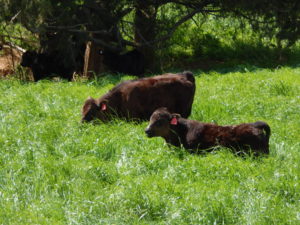
Cattle wade through the fields, which because of the rotational grazing scheme can support higher numbers (Photo courtesy Ronnie Nuckols)
“The creeks, they’re just so clear,” said Cheryl. “Without those cattle in there … it’s just a whole new area.”
“We want the farm to look good,” added Ronnie. “It’s just a mindset. Once you go down that road, you want to continue.”
As Ronnie and Cheryl considered the possibility of placing a conservation easement on the property, they thought about the history. “The main part of this farm has been as is for over 200 years,” said Ronnie. It was possible for the easement to protect something valued over all that time by kin of their own. The real question, though, was about the future.
A conservation easement protects a property from inappropriate development for a long time. And that’s just what both concerned and convinced the Nuckolses. Forever is a long time. A
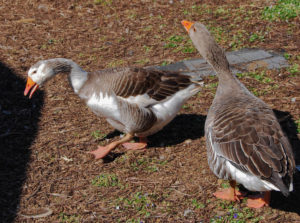
Geese, as well as rabbits and chickens, are among the pets Cheryl Nuckols keeps. (Conservation Partners Photo by Sherri Tombarge)
nd, for protecting the beauty and useful life of their farm, for protecting it from subdivision, it came to seem like the right amount of time.
Once they were sure, Ronnie and Cheryl worked with Conservation Partners to donate the easement to the Virginia Outdoors Foundation and eventually claim a tax credit through Virginia’s land preservation tax credit program. They benefited through sale of the credit, and others benefited by purchasing this high-quality credit at a discount through Conservation Partners.
To talk with Conservation Partners about protecting your land, contact us at 540-464-1899 or info@conservationpartnersllc.com.
